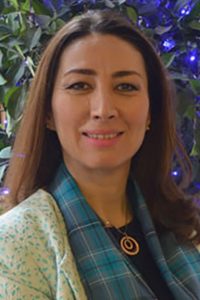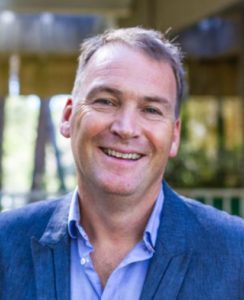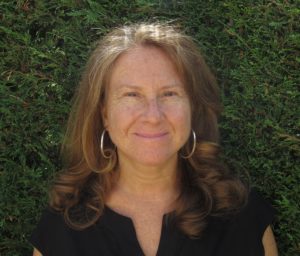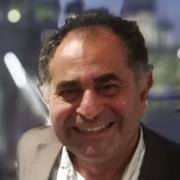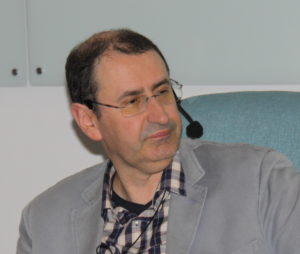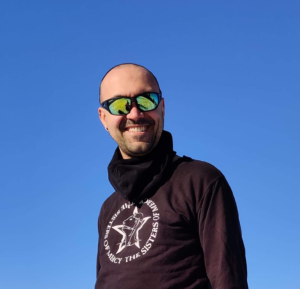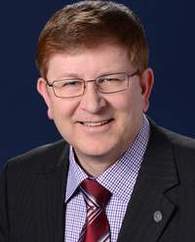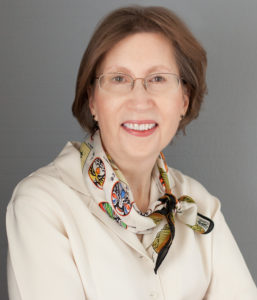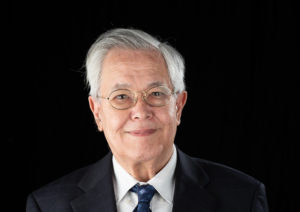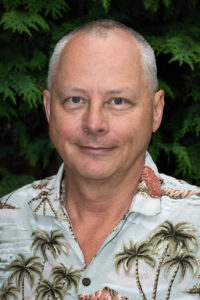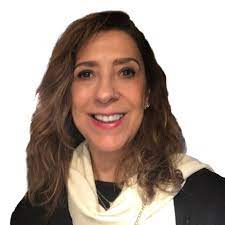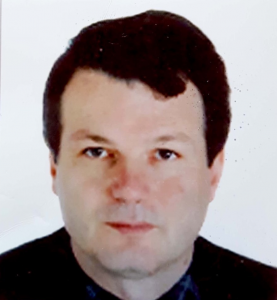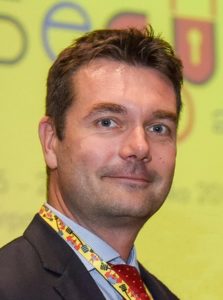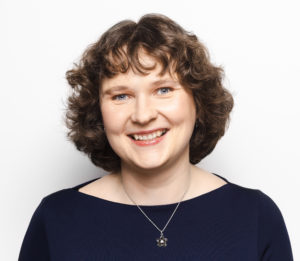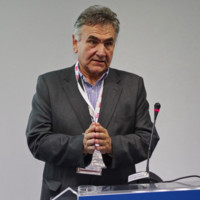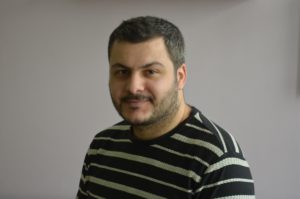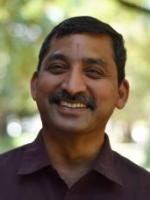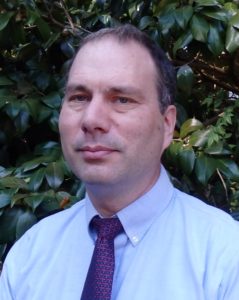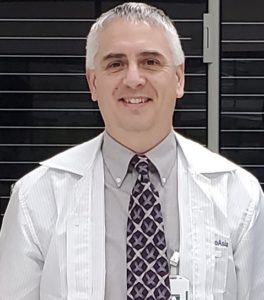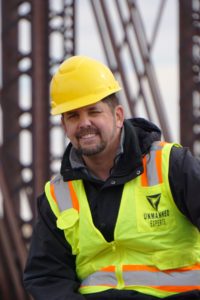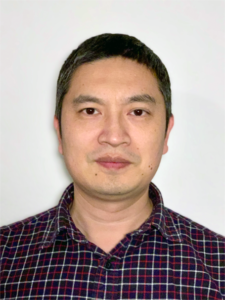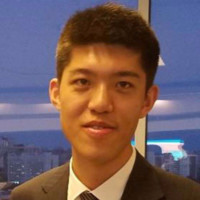Panel 1: “Future Directions for 6G Research and Standardization”
Monday, November 28, 10:00 AM – 11:00 AM Athens time
Room: ZEUS AB
Moderators:
- Mona Ghassemian (Huawei, UK)
Mona Ghassemian has over 20 years of experience in the wireless and telecom research in industry and academia. She currently works at Huawei Advanced wireless Technology Lab as 6G principal expert on industry vertical, working on strategic R&D roadmap of key technologies relevant for next generation mobile communication system design.
Prior to her current role, in her senior manager role at InterDigital Inc, she led a research team on the next generation networking. She worked as a principal research scientist at British Telecom (BT) Research and Technology with a focus on future networks and security. Prior to her industry roles, she worked as a lecturer and senior lecturer at KCL, Greenwich and SBU supervising over a 100 postdocs, PhD and MSc researchers. She has published over 70 papers, 13 patents, 2 book chapters and several contributions to 3GPP, IEEE and IETF standard organisations. She is a member of IEEE SA 1918.1 (Tactile Internet) since 2016, and is currently the IEEE UK & Ireland section past-chair, the IEEE Region 8 Diversity, Equity, and Inclusion and the MGA nomination committees’ member.
- David Boswarthick (ETSI, France)
David Boswarthick is currently the ETSI Director of New Technologies (NET), which involves tracking the latest ICT technology and business trends and all relevant research initiatives in order to identify appropriate technology standards needs and future opportunities for ETSI. In addition, he works on outreach initiatives towards the research and academic communities, both in Europe and globally, as well as engaging with key European research programs such as Horizon Europe. David has more than 30 years’ experience in the telecommunications sector, which includes over 20 years’ working in ICT standardization supporting both 3GPP and ETSI Technical and strategic groups.
Panelists:
- Ana Garcia Armada (Universidad Carlos III de Madrid, Spain)
Title: Three main technologies for 6G (and a wish)
Ana Garcia Armada is a Professor at Universidad Carlos III de Madrid (UC3M), Spain. She has been a visiting scholar at Stanford University, Bell Labs, and University of Southampton. She has published more than 200 papers in conferences and journals and she holds five patents. She serves on the editorial boards of IEEE Transactions on Communications, IEEE Open Journal of the Communications Society and ITU Journal on Future and Evolving Technologies. She has been a member of the organizing committee of several conferences, including IEEE Globecom 2021 as the General Chair. She has received several awards from UC3M, the third place Bell Labs Prize 2014, the outstanding service award from the IEEE ComSoc Signal Processing and Communications Electronics technical committee, the outstanding service award from the IEEE ComSoc Women in Communications Engineering standing committee and the IEEE ComSoc/KICS Exemplary Global Service Award. Her research mainly focuses on signal processing applied to wireless communications.
- Maziar Nekovee (University of Sussex, UK and Sussex AI Institute, ZJSU)
Title: Towards a Net Zero Era in 6G
Prof. Maziar Nekovee is one of the world’s leading mobile communications experts, creating technology that has fundamentally changed the way that people and other things communicate. He has over 20 years of experience in R&D leadership in high tech and university sectors. Previous to joining University of Sussex in 2017, as a full Professor, he was with Samsung Electronics , as Head of its European research and collaborations in 5G, and prior to that he was with BT (British Telecom) Applied Research Division. Maziar has significantly contributed to a number of industry standards in mobile communications and radio spectrum regulations in 3GPP, ETSI, CEPT, ITU, Ofcom and IETF. His current research focus is on 6G, 5G, Open RAN and AI with applications in telecommunication, energy, transport and manufacturing sectors. He is currently Dean of the AI Institute, and Managing Director of 6G Lab at University of Sussex UK, and co-leads a UK government funded Network Plus Consortium on “A green connected and prosperous Britain”, an academia-industry partnership with a focus on drastically reducing CO2 emission by creating interconnected communication, energy and mobility networks, which seamlessly and energy efficiently integrate and orchestrate renewables and electric vehicles in future smart energy grids. He is chair of NetworlEurope WG on vertical and an academic member of 6GIA.
- Rui L. Aguiar (University of Aveiro, Portugal)
Title: If research is right, what is the standards scope for whom?
Rui L. Aguiar (born 1967) is a Full Professor at University of Aveiro. He is also a Research Associate at Jesus College, University of Cambridge. He is currently coordinating a research line in Instituto de Telecomunicacoes, on the area of Networks and Services. He has been serving as Steering Board Chair of Networld Europe, the European ETP representing the telecommunications community, engaged in the discussions of the future European R&D workprogrames for telecommunications. He has been previously been associated with Carnegie Mellon University, the Universidade de Uberlandia, and has been an advisory for the portuguese Secretaria de Estado das Comunicacoes and member of the task force for 5G cybersecurity. He is a Chartered Engineer, a Senior Member of IEEE, and a member of ACM. He is a regular keynote speaker in the future of mobile communications and digital society, with dozens of talks across the whole world. He is an associated editor of Wiley’s Emerging Telecommunication Technologies and Springers’ Wireless Networks. He has more than 500 papers published.
- Shahid Mumtaz (Nottingham Trent University, UK and Instituto de Telecomunicacoes , Portugal)
Title: Orbital Angular Momentum (OAM) Multiplexing Technique for 6G
Shahid Mumtaz is an IET Fellow, IEEE ComSoc and ACM Distinguished speaker, recipient of IEEE ComSoC Young Researcher Award (2020), IEEE Senior member, founder and EiC of IET “Journal of Quantum communication”, Vice-Chair: Europe/Africa Region- IEEE ComSoc: Green Communications & Computing society and Vice-chair for IEEE standard on P1932.1: Standard for Licensed/Unlicensed Spectrum Interoperability in Wireless Mobile Networks. He has more than 15 years of wireless industry/academic experience. He has received his Master’s and Ph.D. degrees in Electrical & Electronic Engineering from Blekinge Institute of Technology, Sweden, and University of Aveiro, Portugal in 2006 and 2011, respectively. From 2002 to 2003, he worked for Pak Telecom as System Engineer and from 2005 to 2006 for Ericsson at Research Labs in Sweden. His work resulted in technology transfer to companies and patented technology. His expertise lies in 5G/6G wireless technologies using AI/ML and Digital Twin(VR/XR) tools and innovation path towards industrial and academic. Moreover, he worked as Senior 5G Consultant at Huawei, Sweden and InterDigital, USA contributing to RAN1/RAN2. He is the author of 4 technical books, 12 book chapters, 300+ technical papers (180+ Journal/transaction, 90+ conference, 2 IEEE best paper award- in the area of mobile communications. He had/has supervised/co-supervising several Ph.D. and Master Students. He uses mathematical and system-level tools to model and analyze emerging wireless communication architectures, leading to innovative Master’s theoretically optimal new communication techniques. He is working closely with leading R&D groups in the industry to transition these ideas to practice. He secures the funding of around 6M Euro.
- Andrea F. Cattoni (IBM, Denmark)
Title: Will we be diving in 6G head or feet first?
Dr. Andrea F. Cattoni received M.Sc. and Ph.D. from the University of Genoa, Italy, in 2004 and 2008. From 2008 to 2015 he was associated with Aalborg University, Denmark. During this period, he served as research consultant for Nokia Networks in 4G and 5G related pre-standardization research activities. From 2016 to 2021 he was Researcher in Keysight Laboratories, investigating test and measurement processes and technologies for modern 5G cloud networks. In 2022 he joined IBM as Senior Solution Architect and Technology Expert in CT/CD, O-RAN, and telco cloud automation. He served as Danish national representative and work package leader within the COST Action IC0902 on Cognitive radio, and he founded and co-chaired the 5G PPP Test, Measurements, and KPIs Validation WG. Dr. Cattoni holds 9 granted patent families on topics covering both 4G and 5G and he has published more than 70 publications on international conferences, journal, and book contributions.
Panel 2: “25 Years of IEEE 802.11 Standards”
Monday, November 28, 5:15 PM – 6:15 PM Athens time
Room: ZEUS AB
Moderator:
- Jon Rosdahl (IEEE 802.11 1st Vice-Chair and Qualcomm, USA)
Jon Rosdahl joined the IEEE in 1985. He has worked on IEEE 802 standards for 29 years. A Senior Member of the IEEE (2002), he is also an IEEE Computer Society Golden Core Member (2017). Rosdahl currently serves as the IEEE 802 Executive Committee’s Executive Secretary (2010-2022) and is serving as the IEEE 802.11 1st Vice-Chair (1994-1996; 2008-2022), and the IEEE 802.11 Treasurer (2008-2022). Rosdahl has been a member of the IEEE-SA Standards board or subcommittees for over 15 years (2006-2015; 2017-2022), including serving as the 2014-2015 and 2020-2021 IEEE-SA Standards Board Vice Chair, the 2011-2013 NesCom Chair and the 2014-2015 ProCom Chair. Rosdahl is currently employed by Qualcomm Technologies, Inc., as an Engineer, Senior Staff. Rosdahl holds a Masters of Engineering, Electrical Engineering (ME EE) (1990) and a Bachelor of Science, Electrical Engineering (BS EE) (1989) degrees from Utah State University.
Panelists:
- Dorothy Stanley (IEEE 802.11 Working Group Chair and Aruba, USA)
Title: Into the 3rd decade of 802.11 Innovation
Dorothy Stanley is an HPE Fellow and head of standards strategy at Aruba, a Hewlett Packard Enterprise Company. She currently serves as Chair of the IEEE 802.11 Working Group. She has chaired several task groups in the 802.11 Working Group and has served in numerous leadership roles in Wi-Fi Alliance. She is a member of the IEEE Standards Association Standards Board (since 2016) and is Chair of the IEEE-SA New Standards Committee (since 2019). She has worked on multiple networking technologies and protocols in both wired and wireless networking. Previous to joining Aruba Networks in 2005, Stanley was a Consulting Member of the Technical Staff at Agere Systems for Wavelan products and a Distinguished Member of the Technical Staff at Lucent Technologies and AT&T Bell Laboratories. Among Dorothy’s awards are 5 patents, a Wi-Fi Alliance Members Achievement Award, and numerous IEEE Standards Association awards.
- Vic Hayes (Ex IEEE 802.11 Working Group Chair)
Title: The first decade of IEEE 802.11
Vic joined on July 1974 the Engineering Laboratory of NCR in Utrecht, the Netherlands, as Systems Engineer for specifying data communications protocols. Standards organisations were a good source of information. Vic was one of the founders of the IEEE 802.11 Working Group for Wireless LANs in 1990. He chaired the group for the full term from its establishment until March 2000. As chair, he worked with European authorities to for the assignment of spectrum in the 2.4 GHz area and the 5 GHz area. In March 2001 Vic founded and chaired the Regulatory Subcommittee within the Wi-Fi Alliance. This committee played a major role in the preparations of Resolution 229 at the World Radio Conference 2003, globally allocating 475 MHz of spectrum in the 5 GHz area for “Wireless Access Systems including Radio LANS” on a co-primary basis. Vic retired from the Engineering Laboratory. Then having the corporate name Agere Systems on October 1, 2003.
- Adrian Stephens (Ex IEEE 802.11 Working Group Chair)
Title:Why competitors must cooperate to have successful standards
Adrian Stephens is now retired from being a Consultant, specializing in Wi-Fi-related Standards, including work as an expert witness. He was the IEEE 802.11 chair, and a member of the IEEE Standards Association Standards Board. He was technical editor of the IEEE 802.11n standard, and two revisions of the 802.11 standard. Previously, as an Intel employee, he coordinated (internally and externally) a technical proposal for IEEE 802.11n. He managed an industry group that successfully proposed an initial draft for the IEEE 802.11ac amendment. Adrian has his name on 99 US patents assigned to Intel. Adrian has over 20 years of product development and research experience working for industry and government. Adrian received a B.A. (’77) and a Ph.D. from Cambridge University. He is a senior member of the IEEE.
Panel 3: “Advances in Security Standards”
Tuesday, November 29, 10:00 AM – 11:00 AM Athens time
Room: ZEUS AB
Moderator:
- Nineta Polemi (University of Piraeus, Greece and trustilio BV)
Nineta Polemi is a cybersecurity Professor in the University of Piraeus-UNIPI- (Cyber Security Lab, Dept. of Informatics) and CTO/ Co-Founder of trustilio. She established and acted as director of the UNIPI cybersecurity lab. She served (2017-2020) as Programme Manager and Policy Officer in the European Commission DG (CONNECT H1 Unit entitled ’Cybersecurity Technologies and Capabilities’). Her cybersecurity expertise is on: operational risk/conformity assessment, security management, incident management, supply chain security, threat intelligence. She has obtained her Ph.D. in Applied Mathematics (Coding Theory) from The City University of New York (Graduate Center). She held teaching and research positions in The City University of New York (Queens & Baruch Colleges), State University of New York (Farmingdale), Universite Libre de Bruxelles (ULB)-Solvay Brussels School-. She has over 150 publications in security has organised numerous scientific and policy international cybersecurity scientific events and trainings e.g. cyberhot. She has received many research grants (NATO, IEEE) and awards (NSA, MSI Army Research Office IEEE, CYNY, Hellenic Ministry of Maritime, Hellenic National Defense General) and has participated as Project and Technical Manager in more than 60 cybersecurity international, EU and national R&D and commercial projects. She serves as external expert/reviewer/consultant in EC, ENISA, FORTH, Focal Point, CodeWeTrust. She is a member of ETSI in the working groups of Cyber and AI.
Panelists:
- Christos Douligeris (University of Piraeus, Greece)
Title: A roadmap in the labyrinth of standards
Christos Douligeris, currently a Professor at the Department of Informatics, University of Piraeus, Greece, held positions with the Department of Electrical and Computer Engineering at the University of Miami. He was an associate member of the Hellenic Authority for Information and Communication Assurance and Privacy and the President and CEO Hellenic Electronic Governance for Social Security SA. Dr. Douligeris has published extensively in the networking scientific literature and he has participated in many research and development projects. His main research interests lie in the areas of computer networking, communications, network security, cyber security, web science, data analytics, new technologies in education and emergency response operations.
- Slawomir Gorniak (EU Agency for Cybersecurity ENISA)
Title: Role of standards in the current and future EU cybersecurity legislation
Slawomir Gorniak, CISSP, CISM, is a telecommunications engineer focused on network security. Since 2008 he works at ENISA (EU Agency for Cybersecurity), where he has been involved in the areas of standardisation, certification and electronic identification. He is a coordinator and co-author of multiple ENISA reports covering various aspects of information security. Currently he is responsible for the Agency’s actions in the area of standardisation and assures its liaisons with Standards Developing Organisations.
- Liina Kamm (Cybernetica AS, Estonia)
Liina Kamm received her PhD in computer science (cryptography) from the University of Tartu (Estonia) in 2015. She is a researcher and research project manager at Cybernetica AS (an SME in Estonia). She started her professional career designing software for the Estonian Genome Foundation and for cross-border clinical trials. She then focused her research on enabling privacy-preserving statistical analysis for social sciences and genomics. She is the chairman of Technical Committee 4 (Information technology) of the Estonian Centre for Standardisation and Accreditation, and represents Estonia in ISO/IEC JTC 1/SC 27 Working Groups 2 and 5. She leads the CyberSec4Europe standardisation work package and certification tasks.
- Ioannis Papagiannopoulos (Piraeus Port, Greece)
Title: Maritime Standards in Practice
Ioannis Papagiannopoulos has a BSc in Physics from National and Kapodestrian University of Athens, an MS postgraduate degree in Data Networks and MBA. Also he is a PhD candidate of the University of the Aegean on a subject entitled Security Resilient Maturity Model – Business Continuity. He has many certifications and extensive experience in the management of large IT projects, Information Systems Management, teaching experience in various university institutes and colleges. He has a big experience in many European Projects as project leader or as partner. (Participation in a numerous EU Project related to Security and Safety such as MEMO, SEE MARINER as Project leader, TrainMOS, S-Port, CYSM, Medusa, Mitigate, Poseidon MED I and Poseidon MED II as partner, SUPPORT, AUGGMED, SAURON, CBRN etc). Also, as chairman for the Science and Technology Committee of H2020 EU Project “AUGGMED”. Now, he is a business executive of the COSCO SHIPPING – PPA as a Port Facility Security Officer, who is responsible for the implementation of the ISPS Code and as the Deputy Security Officer of Piraeus Port. Also, he is Deputy Director of COSCO SHIPPING – PPA’s Directorate of Security – Safety and Environmental Protection.
- Antonis Billis (Aristotle University of Thessaloniki, Greece)
Title: Towards a standardization of patient involvement in research and innovation development: the LifeChamps standardization plan
Dr. Antonis Billis is an Electrical and Computer Engineer and holds a PhD in the research area of digital biomarkers for remote patient monitoring scenarios. As of today he holds the position of PostDoc Research Fellow in the Lab of Medical Physics and Digital Innovation, at the Medical School of Aristotle University of Thessaloniki. His main research interests lie within: ehealth/mhealth, digital biomarkers, clinical decision support systems, cancer informatics, intelligent remote patient monitoring systems, smart hospitals, as well as assistive technologies for vulnerable population. He has published numerous scientific articles in international peer-reviewed journals and gave several oral presentations in international conferences. For his scientific work he has received 2 scholarships from the Captain Fanourakis Foundation and «Support of young researchers» of the Greek Minister of Growth and Investments. In addition, he has more than 10 years of research experience, as he has participated in numerous national and EU funded projects. Currently he scientifically coordinates the LifeChamps project, funded under the Horizon 2020 research framework, focusing on machine learning and Big Data for the QoL support of older cancer survivors.
Panel 4: “Standards for Aerial Communications”
Tuesday, November 29, 6:15 PM – 7:15 PM Athens time
Room: ZEUS AB
Moderator:
- Kamesh Namuduri (University of North Texas, USA)
Kamesh Namuduri is a Professor of electrical engineering and the Director of the Autonomous Systems Laboratory in University of North Texas. During the past 11 years, Dr. Namuduri’s research has focused on aerial networking and communications. He is a co-editor for the book titled UAV Networks and Communications, which was published by the Cambridge University Press in 2017. He is leading the Smart and Connected Community project on “Deployable Communication Systems” in collaboration with the government, public and private organizations. This living laboratory project was demonstrated thrice during the Global City Teams Challenge hosted jointly by the National Institute of Standards and Technology and US Ignite from 2015 to 2018. He contributed to the development of research agenda, requirements and blueprints highly deployable communications systems led by the National Institute of Standards and Technology and National Public Safety Telecommunications Council. Dr. Namuduri earned his bachelor’s degree in electronics and communication engineering from Osmania University in India, his master’s degree in computer science from the University of Hyderabad, and Ph.D. degree in computer science and engineering from University of South Florida.
Panelists:
- Kenneth Goodrich (NASA, USA)
Kenneth Goodrich is the Deputy Project Manager for Technology of the NASA Advanced Air Mobility Project. He has been with NASA for 38 years and has spent much of his career improving the safety, utility, and ease of use of aircraft through the development of advanced aircraft automation, pilot interface, and flight operations technologies. Mr. Goodrich oversees the development and coordination of technology requirements, priorities, and research planning and execution with internal and external AAM stakeholders including industry and the FAA. He has undergraduate and graduate degrees in Aerospace Engineering from University of Michigan and George Washington University, respectively.
- Kenneth Bandelier (VIAVI Solutions, USA)
Kenneth Bandelier is an Application Engineer at VIAVI Solutions who has worked in the field of Avionics Testing for over twenty years. He has worked with numerous international OEMs, airlines, and MROs in both military and commercial aerospace fields to assist with their test equipment training, installation, operation, and technical issue resolution needs specializing in large integrated Automatic Test Equipment (ATE) systems. He is a member of the IEEE P1920.2 Vehicle to Vehicle Communications for UAS Working Group and also a member of various RTCA subcommittees. He has a bachelor’s degree in Electrical Engineering from the Missouri University of Science & Technology and a bachelor’s degree in Physics from the University of Central Missouri.
- Keven Gambold (Unmanned Experts, USA)
Keven Gambold completed 21 years of active duty service with the Royal Air Force as a front-line combat pilot, logging 1500 hours in Tornado GR4 fast-jets, and another 1500 hours of unmanned combat missions and two deployments to Iraq. In his subsequent role as Director for the Guild of Air Pilots and Air Navigators (North America)’s Technical Aviation and Safety Committee, Keven has published peer-reviewed papers on UAS operations in the civil sector, in addition to being an active member of RTCA SC-203 and SC-228. Keven has chaired several global UAS Conferences and Workshops and has written and broadcast numerous Webinars and authored/co-authored a number of books. Keven has also written, and taught numerous international UAS training courses. With a Masters in Aeronautical Operations and a Commercial Pilots License, he is the co-founder and Chief Executive Officer of Unmanned Experts Inc.
Panel 5: “What will be the scope of the future 6G standards?”
Wednesday, November 30, 5:00 PM – 6:15 PM Athens time
Room: Virtual in Zoom
Moderator:
- Rui L. Aguiar (University of Aveiro, Portugal)
Rui L. Aguiar (born 1967) is a Full Professor at University of Aveiro. He is also a Research Associate at Jesus College, University of Cambridge. He is currently coordinating a research line in Instituto de Telecomunicacoes, on the area of Networks and Services. He has been serving as Steering Board Chair of Networld Europe, the European ETP representing the telecommunications community, engaged in the discussions of the future European R&D workprogrames for telecommunications. He has been previously been associated with Carnegie Mellon University, the Universidade de Uberlandia, and has been an advisory for the portuguese Secretaria de Estado das Comunicacoes and member of the task force for 5G cybersecurity. He is a Chartered Engineer, a Senior Member of IEEE, and a member of ACM. He is a regular keynote speaker in the future of mobile communications and digital society, with dozens of talks across the whole world. He is an associated editor of Wiley’s Emerging Telecommunication Technologies and Springers’ Wireless Networks. He has more than 500 papers published.
Panelists:
- Richard Li (Futurewei Technologies Inc., USA)
Title: What is needed from network layers by 6G applications?
Dr. Richard Li is Chief Scientist and Vice President of Network Technologies at Futurewei, USA. Richard served as the Chairman of the ITU-T FG Network 2030 from 2018 to 2020, and as the Vice Chairman of the Europe ETSI ISG NGP (Next-Generation Protocols) from 2016 to 2019. He has also served as Co-Chairs of steering committees and technical program committees of some academic and industrial conferences. Richard is extremely passionate about advancing ICT infrastructure technologies and solving problems in their entirety, thus creating a bigger and long-term impact on the networking industry. During his career, Richard spearheaded network technology innovation and development in Routing and MPLS, Mobile Backhaul, Metro and Core Networks, Data Center, Cloud and Virtualization. Currently he leads a team of scientists and engineers to develop technologies for next-generation network architectures, protocols, algorithms, and systems in the support of emerging and forward-looking applications and industry verticals in the context of New IP, Network 2030, and 5G/B5G/6G.
- Ashutosh Dutta (Johns Hopkins University and IEEE Future Networks Initiative, USA)
Title: Future Networks: The INGR Vision and the Path to 6G
As a Technical Leader in 5G and security, IEEE Fellow Ashutosh Dutta has been serving as the founding Co-Chair for the IEEE Future Networks Initiative that focuses on 5G standardization, education, publications, testbed, and roadmap activities. Ashutosh currently works as Chief 5G Strategist and Fellow at Johns Hopkins University Applied Physics Labs and Chair of Electrical and Computer Engineering for Engineering Professional Program at JHU. Earlier Ashutosh worked as Director of Technology Security at AT&T, CTO for NIKSUN, Senior Scientist in Telcordia Research, Director of Central Research Facility at Columbia University and Computer Engineer at TATA Motors. Ashutosh is the author of more than 100 technical papers and 31 issued patents. Ashutosh is co-author of the book, titled, “Mobility Protocols and Handover Optimization: Design, Evaluation and Application” published by Wiley-IEEE press. Ashutosh currently serves as the founding co-chair for IEEE Future Networks Initiative and Member-At-Large for IEEE Communications Society, where was a Distinguished Lecturer for 2017-2020. He co-founded the IEEE STEM conference (ISEC) and helped to implement EPICS (Engineering Projects in Community Service) projects in several high schools. Ashutosh has served as the general Co-Chair for the IEEE STEM conference for the last 10 years, as well as the Director of Industry Outreach for IEEE Communications Society from 2014-2019. He has served as the general Co-Chair for the premier IEEE 5G World Forums and has organized 85 5G World Summits around the world. Ashutosh currently serves as the Chair for IEEE Industry Connection’s O-RAN activities. Ashutosh is a Distinguished Alumnus of NIT Rourkela with BS in Electrical Engineering, MS in Computer Science from NJIT, and Ph.D. in Electrical Engineering from Columbia University under the supervision of Prof. Henning Schulzrinne.
- Tao Chen (VTT Finland)
Title: 6G Research in O-RAN Alliance
Dr. Tao Chen is a principal scientist at VTT Finland and the co-chair of the next generation research group (nGRG) in O-RAN Alliance. In VTT, he used to lead a team that develops AI/ML applications, data analytics, and data-driven solutions for a variety of industry sectors, including telecommunications, satellite remote sensing, automated driving, and mining. He has over two decades of experience in the communication sector and extensive experience leading significant research and development projects in Europe. Back to 2015, Dr. Chen’s EU COHERENT project was the first to propose the RAN intelligent controller concept within a software defined RAN. He is a Royal Academy of Engineering visiting professor at University of Kent, UK, and associated professor (Docent) at University of Jyvaskyla, Finland.
- Ruiqi Liu (ZTE, China)
Ruiqi (Richie) Liu received the B.S. and M.S. degree (with honors) in electronic engineering from the Department of Electronic Engineering, Tsinghua University in 2016 and 2019 respectively. He is now a master researcher in the wireless research institute of ZTE Corporation, responsible for long-term research as well as standardization. His research interests include reconfigurable intelligent surfaces, wireless positioning, quantum communication and visible light communication. He is the author or co-author of several books and book chapters. During his 3-year service at 3GPP from 2019 to 2022, he has authored and submitted more than 500 technical documents with over 100 of them approved, and he served as the co-rapporteur of the work item (WI) on NR RRM enhancement and the feature lead of multiple features. He currently serves as the Vice Chair of ISG RIS in the ETSI. He actively participates in organizing committees, technical sessions, workshops, symposia and industry panels in IEEE conferences as the chair, organizer, moderator, panelist or invited speaker. He served as the lead guest editor for the special issue on 6G in IEEE OJCOMS. He serves as the Editor of ITU Journal of Future and Evolving Technologies (ITU J-FET) and the Associate Editor of IET Quantum Communication. He is the Standardization Officer for IEEE ComSoc ETI on reconfigurable intelligent surfaces (ETI-RIS) and the Standards Liaison Officer for IEEE ComSoc Signal Processing and Computing for Communications Technical Committee (SPCC-TC). He received the Outstanding Service Award from the SPCC-TC in 2022 and 2 best workshop awards as the chair.



